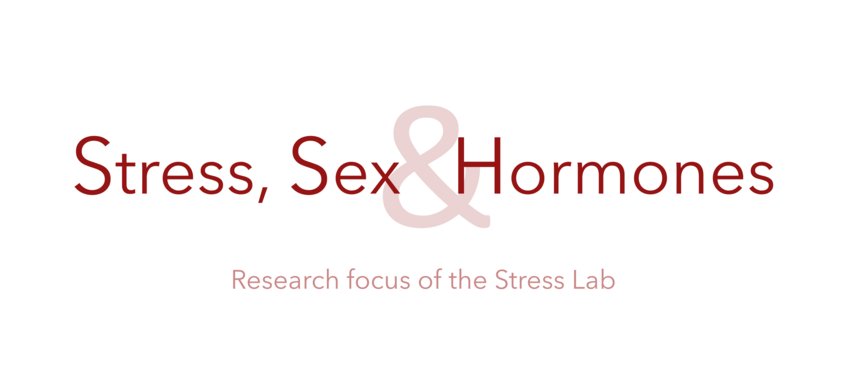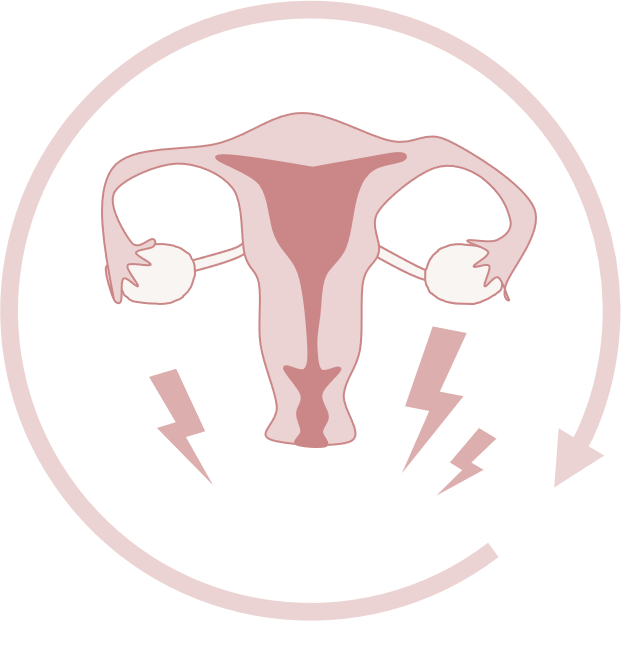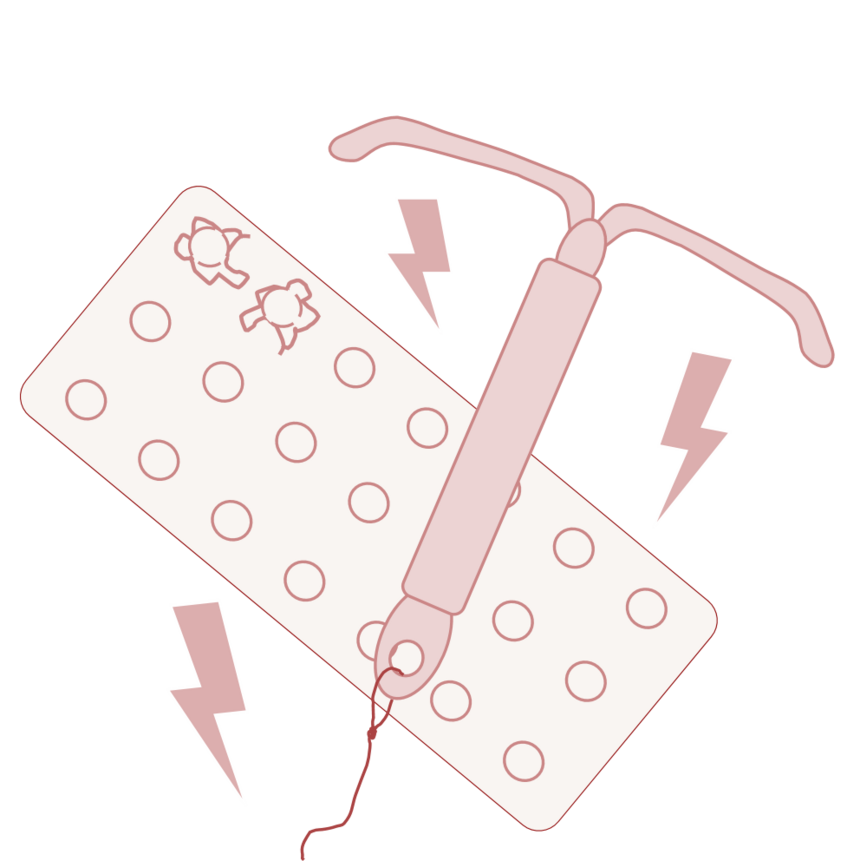
Ausschreibung für Masterarbeiten (Juni - Dezember 2025) - Bewerbungsfrist 15. Mai
About
Stress can have a significant impact on different areas of life and can, for example, affect our mood and sex life. Sex hormones appear to play an important role here.
In our research focus "Stress, Sex & Hormones", we investigate how stress influences sexual experience and behavior, as well as the interactions between stress and hormonal changes in the female* reproductive life cycle.
Methods
In our research, we adopt an innovative "from lab to life" approach in our investigation of stress. We adopt Ecological Momentary Assessments (EMA) in the participants' everyday lives as well as laboratory-based stress tests. Furthermore, we utilize biological markers of stress, including salivary cortisol and alpha-amylase levels, as well as heart rate measurements, to complement our assessments.
This comprehensive methodology allows us to capture real-time data on stress responses and experiences, providing valuable insights into the dynamic interplay between stress, sex and hormones. By bridging the gap between controlled laboratory settings and real-world contexts, we aim to advance our understanding of stress in the context of female reproductive health.
Current Projects
Stress & PMS
ISSAC – Interactions in Stress and Premenstrual Symptoms across the Menstrual Cycle

ISSAC – Interactions in Stress and Premenstrual Symptoms across the Menstrual Cycle
Hormonal fluctuations in the second half of the menstrual cycle can be associated with affective, behavioral and physical symptoms known as premenstrual syndrome (PMS). Premenstrual dysphoric disorder (PMDD), a particularly severe form of PMS, has been recognized as a mental disorder since 2013 and is estimated to affect around 58,000 to 150,000 Austrians. It is characterized by emotional symptoms such as depressive moods, mood swings, irritability and tension.
Stress has been identified as a significant risk factor for PMDD and has been repeatedly linked to the development, worsening and maintenance of symptoms. However, the underlying psychobiological dynamics and time course remain largely unexplained.
By collecting daily psychological and biological stress markers and PMDD symptoms throughout the menstrual cycle, we aim to better understand the underlying dynamics and subsequently use the findings to help improve the quality of life of those affected.
Contact Celine Bencker to find out more about this project.
Study starts in March 2025!
Details coming soon.
Stress & hormonal contraceptives
HoCoS – Hormonal Contraceptives and Stress

HoCoS – Hormonal Contraceptives and Stress
Studies show that taking hormonal contraceptives can have an impact on the stress system and, for example, increase cortisol levels. In the HoCoS study, we are investigating how different hormonal contraceptives (e.g. the pill, hormonal IUD, vaginal ring) influence stress experiences and stress reactivity. We want to find out how different hormone preparations modulate the biological stress response and the subjective perception of stress. In addition to gaining a better understanding of the interplay of exogenous and endogenous sex hormones with stress and mood, our aim is to inform clinical practice and support women in making informed contraceptive decisions.
This project is currently still in the preparation phase. Expected start: 2026.
Contact Laura Gschwandtner to find out more about this project.
Past Projects
Sexual experience and behaviour in everyday life: Ecological Momentary Assessment with biomarkers
The aim of this study was to research stress and sexuality in everyday life and, in particular, to investigate the influence of stress on sexual experience (fantasies, desire and arousal). We investigated the relationship between stress and sexual experience and behavior in everyday life, how stable this relationship is and whether it differs depending on sex and gender. We also looked into whether there are certain moderators, such as risk or protective factors, that influence the relationship.
Head of study: Prof. Dr. Urs M. Nater, Head of experiment: Hanna Mües, MSc
Team
Univ.-Prof. Urs M. Nater
Urs Nater is head of the Institute of Clinical and Health Psychology and of the Research Platform The Stress of Life (SOLE) - Processes and Mechanism underlying Everyday Life Stress.
Celine Bencker, MSc

Celine Bencker, MSc
As part of her dissertation, Celine Bencker is investigating the psychobiological dynamics between stress and premenstrual symptoms across the menstrual cycle. Celine Bencker is a recipient of a DOC Fellowship of the Austrian Academy of Sciences for the implementation of her dissertation project, which includes the ISSAC study.
E-Mail: celine.bencker@univie.ac.at
Laura Gschwandtner, MSc

Laura Gschwandtner, MSc
Laura Gschwandtner is a cognitive scientist with her main research focus on stress-related disorders. She is currently planning the HoCoS project, which is investigating how various hormonal contraceptives, such as the pill or the hormonal coil, affect the stress experience and biological stress markers.
E-Mail: laura.gschwandtner@univie.ac.at
Current and Past Master's Students
Carlotta Petrusch, BSc:
"The temporal association of self-reported sleep parameters and the severity of affective premenstrual symptoms"
Lea Maria Beinbauer, BSc, Dott.ssa.mag.:
"Maladaptive Substance Use across the Menstrual Cycle"

